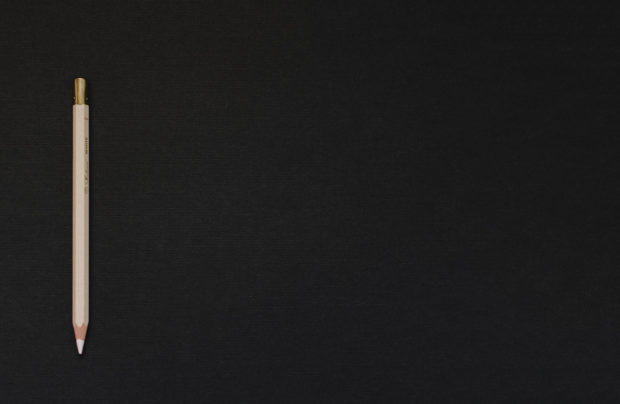You have no items in your cart. Want to get some nice things?
Go shopping
In 2019, I reconnected with an old friend of mine I had not seen in almost twenty years. After discovering I was now a published novelist, he reached out to me. We met for coffee and traded stories of what our lives had been like over the last two decades—the ups and downs.
He had a well-paid job he tolerated but wasn’t passionate about. However, he had a rich family life, which more than made up for any unhappiness at work. He had married sixteen years ago and now had two children, the oldest of whom was fifteen––his daughter.
“She’s actually why I wanted to talk to you,” he said.
Surprised, I asked why?
“She’s heartbroken, and I don’t know how to handle it; what advice I should give her.”
I asked what the advice related to. My friend paused a moment before speaking. “She wants to be a writer—a novelist—more than anything, but a teacher recently told her she should stick to something that doesn’t require so much concentration.” He looked at me before speaking again. “Writing a novel—it takes a lot of concentration, doesn’t it?”
I told him, yes, but so do most jobs. Why would a teacher tell a young girl not to pursue something just because it takes a lot of concentration?
That’s when my friend revealed his daughter has struggled in school most of her life, but it was only recently that she’d been diagnosed with a “pretty significant” learning disability, for which she’s now receiving help. “Her grades have improved slowly since then, but let’s be real, she’ll face challenges other kids won’t because of this—problems concentrating, problems remembering things. I know what her teacher said sounded blunt, but he was just trying to be realistic.”
My friend continued, “I mean, I imagine writing a novel is difficult enough without a learning disability, much less getting it published and being able to make a living as a writer. I love my daughter so much, and I want her to have the happiest life possible. But I also don’t want to encourage her to pursue something, let’s face it, that even most normal people wouldn’t be successful at.” He shook his head, perhaps realizing how that sounded. “I’m just torn between wanting to be a good father and telling her to pursue her passions versus wanting to be a responsible father and being honest and realistic about possibilities.”
I looked at him in silence.
“And, well,” he said, “I already have an educator’s opinion, and I guess I just wanted to get a novelist’s. What do you think?”
For several moments, I sat soundlessly, considering all he’d told me. Then, quite involuntarily, a quiet laugh slipped from between my lips, and a thin smile spread across my face––much to my friend’s perplexion.
But instead of relating what I replied, I’m going to address his daughter here directly, and every person out there who has any kind of learning disability and is afraid that means they can’t accomplish their dreams of becoming a writer. And I’m qualified to address the circumstance they find themselves in because I’m no different than they are. So, to my friend’s daughter (and everyone like us):
So, you have a learning disability? Welcome to the club. There’s a lot of us, and we’re always happy to accept new members.
Like you, I’ve had a lifelong desire to write and become a novelist. And like you, I was diagnosed with a “significant” learning disability when I was fifteen. I know what it’s like to read and study, only to forget everything when you sit down for a test. I know what it’s like to have teachers accuse you of being lazy or being a liar, not believing you when you say you’ve studied for hours yet can’t remember a thing. And I also know what it’s like, after being diagnosed, for those same teachers to not apologize for not believing you, instead pivoting to saying you need to choose “realistic” career paths now because your learning disability limits your options. One teacher once even told me: “Normal people have enough challenges, much less people with learning disabilities.”
So, as someone who’s been living with your exact condition for almost three decades longer than you, I feel I have the expertise to reveal that, these teachers? They’re wrong. Your learning disability shouldn’t stop you from pursuing any professional career––much less writing. People who tell you it should, whether they are doing so out of cautious kindness or ignorant stigma, are wrong. People who say that because of a learning disability, you aren’t “normal” and thus couldn’t possibly have what it takes to write a novel––they’re wrong.
As if being “normal”––whatever that means––is the singular requirement to put words to paper.
Besides, “normal” people don’t write novels. Writing a novel is long and hard and full of self-doubt and even self-hatred. And the normal person, that is, the typical person, can’t put up with that––not for long, anyway––which is why comparatively so few people ever attempt or complete a novel. It’s only the abnormal person who can persevere. An “abnormal” person like you. I know this about you because you have already persevered. Your dad tells me you still show up every day and sit at your desk and do the writing despite any supposed limitations your learning disability has thrown at you.
But being a writer isn’t just about perseverance. When it comes to novel writing, the fact that you aren’t “normal” isn’t a curse. It’s a blessing. How? Because it’s our struggles that give us a unique view of the world––a way of seeing it like no one else can. And that unique view is the foundation for what makes a great novelist because writing a great novel is all about lending the reader a new set of eyes through which they can see the world afresh. How could a normal person, who by definition doesn’t have a unique perspective, do that?
Don’t believe me? Maybe you’ll believe these people then: Octavia E. Butler, John Irving, F. Scott Fitzgerald, Jules Verne, Lewis Carroll, Agatha Christie, Ernest Hemingway, Roald Dahl, Charles Bukowski, Mark Twain, Roberto Bolaño, and Virginia Woolf—just to name a few.

These writers have two things in common: they fundamentally affected the world through their fiction, lending us new eyes with which to see it—and they all had learning disabilities, just as you and I do. They all also wrote better than ninety-nine percent of the people who ever lived—yes, even the so-called “normal” ones. And I would argue they wrote better because, like you, their so-called disabilities helped in part to inform their unique view of the world. It helped give them a one-of-a-kind way of seeing it, and thus they gave readers a new way of seeing it, too. And we remember them for that––for the eyes they lent us; for their brilliance that, at least, wasn’t hindered by their learning disabilities and, more likely, was only aided by it. So, I’ll leave you with this last bit of advice (and I apologize to your dad in advance for my language here): if anyone tells you you shouldn’t follow your dream of becoming a novelist because of your learning disability, smile at them, nod, and then in your head tell them to go fuck themselves. Then get back to your writing. We don’t see others as they are; we see them as we are. When someone tells you you can’t do something, all they mean is they can’t do it.
Your experiences and the challenges life sends you give you a unique way of seeing things. That in itself is a gift—and a gift I hope you will share with the rest of us through your writing. I, for one, can’t wait to read it.
[Epilogue: I originally wrote this essay in 2019. I dug it up again because I recently spoke to my friend. He gave me an update on his daughter. A short story she wrote has just won her school newspaper’s literary award. It’s a short story she wrote the summer after her teacher told her she didn’t have the concentration needed to be a writer.]
About Michael Grothaus
Michael Grothaus is a novelist and journalist. His writing has appeared in Fast Company, The Guardian, Litro Magazine, VICE, The Irish Times, Screen, Quartz, and others. His debut novel is EPIPHANY JONES, a story about sex trafficking among the Hollywood elite. It was longlisted for the CWA New Blood Dagger Award and in 2018 was named one of the 25 “Most Irresistible Hollywood Novels” by Entertainment Weekly. His next book is TRUST NO ONE: INSIDE THE WORLD OF DEEPFAKES, which will be published by Hachette imprint Hodder Studio. The book explores the human impact that artificially-generated video will have on individuals and society in the years to come. He is repped by Northbank Talent. You can follow Michael on Twitter @michaelgrothaus.
- Web |
- More Posts(2)




